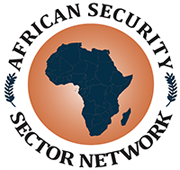Executive Committee
ASSN has a 13-member Executive Committee that provides strategic leadership to the network. The Executive Committee is elected by the General Assembly to a three-year term.
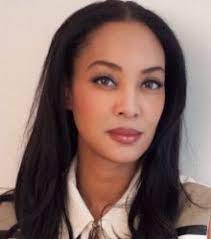
Dr. Niagalé Bagayoko-Penone
Chair
Dr. Niagalé Bagayoko-Penone was the Programme Manager for the Maintenance and Consolidation of Peace Programme of the International Organisation of La Francophonie (OIF). She has conducted extensive field research in several francophone African countries, much of it anchoring on the interface between security and development. She has been a lecturer at the Institute of Development Studies (IDS) - University of Sussex (UK) and the Institute of Political Studies in Paris; an Associate Fellow at the Centre for Research and Education on Strategy and Technology (US-CREST); and a Post-Doctoral Research Fellow at the Institute of Research for Development (IRD) in France. In 2003, she won the Prize for Scientific Research awarded by the French Ministry of Defence. She has also been a consultant for the African Union; the Department for International Aid (DFID); the International Security Sector Advisory Team (ISSAT); the Centre for Study of the Social Science of Defence (C2SD); and the French Ministry of Defence.
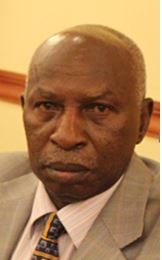
Lt Col (Rtd) Jerry Kitiku
Vice Chair
Lt Col (Rtd) Jerry Kitiku is the Director of the Security Research and Information Centre (SRIC-Kenya), a non-profit think tank that provides data and information on human security and the security sector in Kenya, the wider Great Lakes Region and the Horn of Africa. A retired Kenya Navy officer, Lt Col Kitiku is an expert on human security dynamics and conflict. He has both command and administrative experience at senior levels in the military and was a senior instructor at the Defence Staff College (DSC) in Nairobi. In the early 2000s, he was among a team of experts that crafted an Implementation Plan and Agenda for Action, on request by the Government of Kenya, for the Nairobi Declarations on Small Arms and Light Weapons (SALW). He was also part of a research team that conducted national surveys on the problem of SALW and the development of national action plans in Burundi, the Democratic Republic of Congo (DRC), Kenya, Rwanda, Tanzania and Uganda. Lt Col Kitiku also served for many years as a security attaché in various Kenyan diplomatic missions abroad.
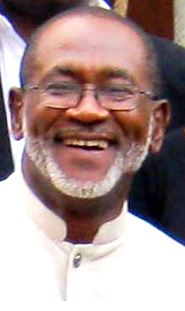
Professor Eboe Hutchful
Executive Secretary
Eboe Hutchful is a professor of African Studies at Wayne State University in Detroit, Michigan, USA, and has taught at several other universities in Africa and North America, including the University of Toronto, Trent and Waterloo Universities in Ontario, the University of Ghana and the University of Port Harcourt. He is a long-time researcher on civil-military relations, security sector reform, and international development issues. He is the author of Ghana's Adjustment Experience: The Paradox of Reform (James Currey, 2002), co-editor (with Wuyi Omitoogun) of Budgeting for the Military Sector in Africa: the Processes and Mechanisms of Control (Oxford University Press, 2006), and co-editor (with Abdoulaye Bathily) of The Military and Militarism in Africa (Codesria Books, 1998). Professor Hutchful is a member of the UN Secretary General's Advisory Board on Disarmament Matters (ABDM). He is also a member of the International Advisory Board of the Geneva Centre for the Democratic Control of Armed Forces (DCAF); the UN International Policing Advisory Council (IPAC); the Governing Board of the Global Consortium for Security Transformation (GCST); and the Advisory Group of the (erstwhile) Global Facilitation Network for Security Sector Reform (GFN-SSR).
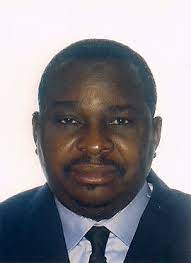
Dr. Emile Ouedraogo
Regional Coordinator, West Africa
Dr. Emile Ouedraogo is an adjunct professor of practice at the Africa Center for Strategic Studies (ACSS), specialising in issues related to national security strategy development and security sector reform and governance. Since 2007, he has worked with the Africa Center on more than 30 activities as a speaker, facilitator, and author. He also works with the United States Africa Command (AFRICOM), Partners Global, the Konrad Adenauer Foundation, Friedrich-Ebert-Stiftung (FES), and the ECOWAS Parliament. He is the founding President of the Fondation pour la Sécurité du Citoyen (FOSEC) of Burkina Faso. Prior to joining the Africa Center, in 2017-18, Dr. Ouedraogo completed a six-month mission with the African Union as a security sector reform and governance expert for Madagascar. As Minister of Security of Burkina Faso from 2008 to 2011, he initiated and developed a Homeland Security Strategy and operationalised the concept of community policing and community participation in the management of security issues. After 30 years of service with the Burkina Faso Army, he retired from active duty in 2012 as a Colonel, having served in positions including Aide to the Prime Minister, Support Regiment Commanding Officer, and Chief of the Military Intelligence Division at the Army General Staff. Dr. Ouedraogo has served as a parliamentarian in the National Assembly of Burkina Faso and in the ECOWAS Parliament, where he sat on the Political Affairs, Peace, Defence, and Security Committees. In this capacity, he carried out informative and investigative missions in most of the 15 ECOWAS countries. He earned a PhD with honours from the Centre for Diplomatic and Strategic Studies in Paris, France, on security sector reform and governance in the ECOWAS Region.

Mr. Sean Tait
Regional Coordinator, Southern Africa
Sean Tait is the founder and Director of the African Policing Civilian Oversight Forum (APCOF). He holds a degree in Criminology from the University of Cape Town. He is a former Director of the Criminal Justice Initiative at the Open Society Foundation for South Africa, and the former Executive Director of the South African NGO, Urban Monitoring and Awareness Committee (UMAC). His areas of expertise include policing, police accountability, crime prevention, conflict resolution and peacebuilding.
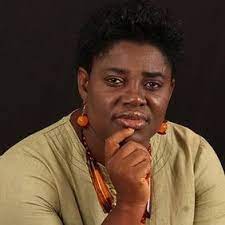
Dr. Uju Agomoh
Member
Dr. Uju Agomoh is the founder and director of Prisoners Rehabilitation and Welfare Action (PRAWA), a security, justice and development focussed NGO with regional/continental initiatives in several African Countries. She has served as a member of the National Human Rights Commission of Nigeria (NHRC) and was the Commission's Special Rapporteur on Police, Prisons and Centres of Detention (2001-2008). She has also been a member of the Nigerian Presidential Advisory Committee on the Prerogative of Mercy (2006-2009); a Member of the coordinating committee of the Association of Security Sector Education and Training (ASSET); Council Member of the International Rehabilitation Council for Torture Victims (IRCT); Board Member of the International Corrections and Prisons Association (ICPA); and Chair of the ICPA Developing Countries Committee. Dr. Agomoh is also a Research Fellow at the University of Nigeria Institute for Development Studies (IDS). Her recent research work has focussed on the topics of gender and the criminal justice system, sustainability of penal reform interventions and management of pre-trial detention, mentally-ill detainees, prison-based and community-based re-entry programmes, and the prevention of torture.
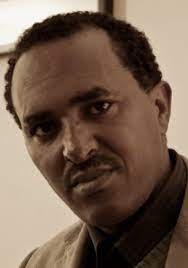
Professor Medhane Tadesse
Member
Professor Medhane Tadesse is a specialist in African peace and security. He has taught at various universities in Ethiopia and abroad and has written extensively on African security and related topics, spawning four books, over 160 briefing papers, articles, commentaries and policy memos. More recently, he has been a Visiting Professor at the School of Global Studies, King’s College, London, lectureship on the governance of security. A lot of his work has dwelt on the pertinent issues of regime stability, vulnerability to conflict, ethnic conflict, armed violence, globalised security and diplomacy, militarisation, governance and humanitarian crisis in Africa. Professor Medhane has served as a consultant to several African governments, as well as international and inter-governmental organisations on issues relating to peace and stability. He runs the Peace and Security Studies Directorate at the Centre for Policy Research and Dialogue (CPRD) in Juba, South Sudan. He is also a columnist and frequent commentator on global and regional security issues, and is the editor of The Current Analyst, an online journal that examines issues of peace and security in Africa.
Dr. Kossi Mawuli Agokla
Member
Dr. Kossi Mawuli Agokla is a Togolese national and a senior professor of public law. He graduated in international relations and public administration. He has served in high positions in the Togolese administration, notably, twice as Secretary-General of the Ministry of Labour and Ministry of Internal Security and as Special Advisor to the Prime Minister in charge of reforms.
He has also served as an international civil servant in the Organisation of African Unity (now the African Union), the Economic Community of West African States (ECOWAS), and the West African Monetary and Economic Union (UEMOA) as Secretary-General of the Commission, among other engagements. At the United Nations Regional Centre for Peace and Disarmament in Africa (UNREC), he led the African Security Sector Reform Programme (ASSEREP) for almost six years, implementing programmes on defence and the security forces mostly in Francophone African countries, and law enforcement related to electoral processes; strategic and operational plans; Small Arms and Light Weapons (SALW) including stockpile management; Gender issues on National Action Plans on UNSCR 1325 and Gender Policy paper; Civilian and military relations; democratic control of the security sector; and monitoring of national SSR processes.
Dr. Agokla has participated in and facilitated several workshops in Europe and throughout Africa on SSR issues. He has contributed to several publications, articles and tools on SSR and has collaborated with many institutions including the United Nations, the African Union, the European Union, the International Organisation of La Francophonie (OIF), the Geneva Centre for Security Sector Governance (DCAF), the Institute for Security Studies (ISS), the Kofi Annan International Peacekeeping Training Centre (KAIPTC), and the Group for Research and Information on Peace and Security (GRIP).
He has been an active member of the ASSN over the past decade and has conducted some of its major activities.

Dr. Mpako Foaleng
Member
Dr. Mpako Foaleng is a specialist in security sector reform (SSR) and governance, currently working with the United Nations Strategic Advisory Team to the Presidency of Burkina Faso. She has worked in various capacities including strategic advice, capacity and policy development, programme design, implementation, monitoring and evaluation of programmes. She advised and supported processes and policy development at various levels with the United Nations, the Economic Community of West African States (ECOWAS), the African Union and at country level in countries such as The Gambia, Burkina Faso, Mali, Guinea, the Democratic Republic of Congo (DRC), Madagascar, and Niger, just to cite a few. She served as an advisor to the United Nations team supporting the initiation of the SSR process in Guinea.
Prior to joining the team in Burkina Faso, Mpako served as the Security Sector Reform Advisor of the Office of the United Nations for West Africa and the Sahel (UNOWAS), where for more than two years she led and managed the SSR portfolio of the Office in support of the Special Representative of the United Nations Secretary-General in the 16 countries of the region. She coordinated and managed the secretariat of the West Africa Coast Initiative which brings together the United Nations Office on Drugs and Crime (UNODC), the Department of Peacekeeping Operations (DPKO), Interpol and UNOWAS in the fight against transnational organised crime and drug trafficking.
From 2009 to 2015, she worked with the Geneva Centre for the Democratic Control of Armed Forces (DCAF), which she initially joined as an adviser within the International Security Sector Advisory Team (ISSAT), and later became head of the Africa Programme. In this capacity, she built and developed the Africa Programme, mobilised funds and initiated the implementation while putting its team together from scratch. She also negotiated with the authorities and the leadership the adhesion of Madagascar into the DCAF Foundation Council as a Member State. She implemented a key programme in Mali, where she built institutional relationships with the Ministry of Security and civil protection, and provided advisory services to the country’s Parliament providing which were catalytic for the creation of the first National Committee for SSR in 2014.
Mpako has worked for many years in the areas of human security and protection for civilians in conflict-affected and post-conflict situations for the Washington-based organisation Refugees International and for the Norwegian Refugee Council. She is the author of several studies including on the African Union reform, African Union reform, security sector reform programming and civil wars in Africa. Mpako has a doctorate in international relations from the Graduate Institute of International and Development Studies in Geneva and a Laurea in political science from the University of Perugia in Italy. She has also studied at Yaoundé University II in Cameroon, her country of origin.
Français
Mpako Foaleng est spécialiste de la réforme du secteur de la sécurité et de la gouvernance, actuellement membre de l’équipe de conseil stratégique des Nations Unies auprès de la Présidence du Faso. Elle a exercé diverses fonctions, notamment de conseils stratégiques, d’appui au renforcement des capacités et à l’élaboration des politiques et stratégies, la conception de programmes, la mise en œuvre, le suivi et l’évaluation de programmes. Elle a conseillé et soutenu des processus et l'élaboration de politiques à différents niveaux avec l'ONU, la CEDEAO, l'Union Africaine et au niveau national dans des pays tels que la Gambie, le Burkina Faso, le Mali, la Guinée, la République démocratique du Congo, Madagascar et le Niger pour n’en citer que quelques-uns. Elle a été conseillère auprès de l'équipe des Nations Unies chargée d’appuyer le lancement du processus de la réforme du secteur de la sécurité en Guinée.
Avant de rejoindre l'équipe au Burkina Faso, Mpako a été la conseillère en réforme du secteur de la sécurité du Bureau des Nations Unies pour l'Afrique de l'Ouest et le Sahel, où elle a dirigé et géré pendant plus de deux ans le portefeuille de la RSS et conseillé le représentant spécial du secrétaire général des Nations Unies sur les 16 pays de la région. Elle a coordonné et géré le secrétariat de l'Initiative de la côte ouest-africaine, qui réunit l'ONUDC, le Département des Opérations de Maintien de la Paix, Interpol et l'UNOWAS dans la lutte contre le crime organisé transnational et le trafic de drogue.
De 2009 à 2015, elle a travaillé avec le Centre pour le contrôle démocratique des forces armées (DCAF) qu'elle a d'abord rejoint en tant que conseillère au sein de l'Équipe de conseil du secteur de la sécurité internationale (ISSAT) et plus tard en tant que chef du programme Afrique. À ce titre, elle a développé le programme, mobilisé des fonds et initié la mise en œuvre tout en construisant son équipe. Elle a également négocié avec les autorités et le leadership l'adhésion de Madagascar au Conseil de fondation du DCAF en tant qu'État membre. Elle a mis en place un programme clé au Mali où elle a établi des relations institutionnelles avec le ministère de la Sécurité et de la protection civile, le Parlement et fourni des conseils qui ont servi de catalyseur pour la création du premier comité national de la RSS en 2014.
Mpako a aussi travaillé pendant plusieurs années dans les domaines de la sécurité humaine et de la protection des civils dans les situations de conflit et d'après conflit pour les organisations telles que le Norwegian Refugee Council et Refugees International.
Elle est l'auteur de plusieurs études, notamment sur la réforme de l'Union africaine, la programmation de la réforme du secteur de la sécurité et les guerres civiles en Afrique.
Elle est titulaire d'un doctorat en relations internationales de l'Institut universitaire de hautes études internationales et du développement de Genève et d'une Laurea en sciences politiques de l'Université de Pérouse en Italie. Elle a aussi étudié à l’Université de Yaoundé II au Cameroun d’où elle est originaire.
